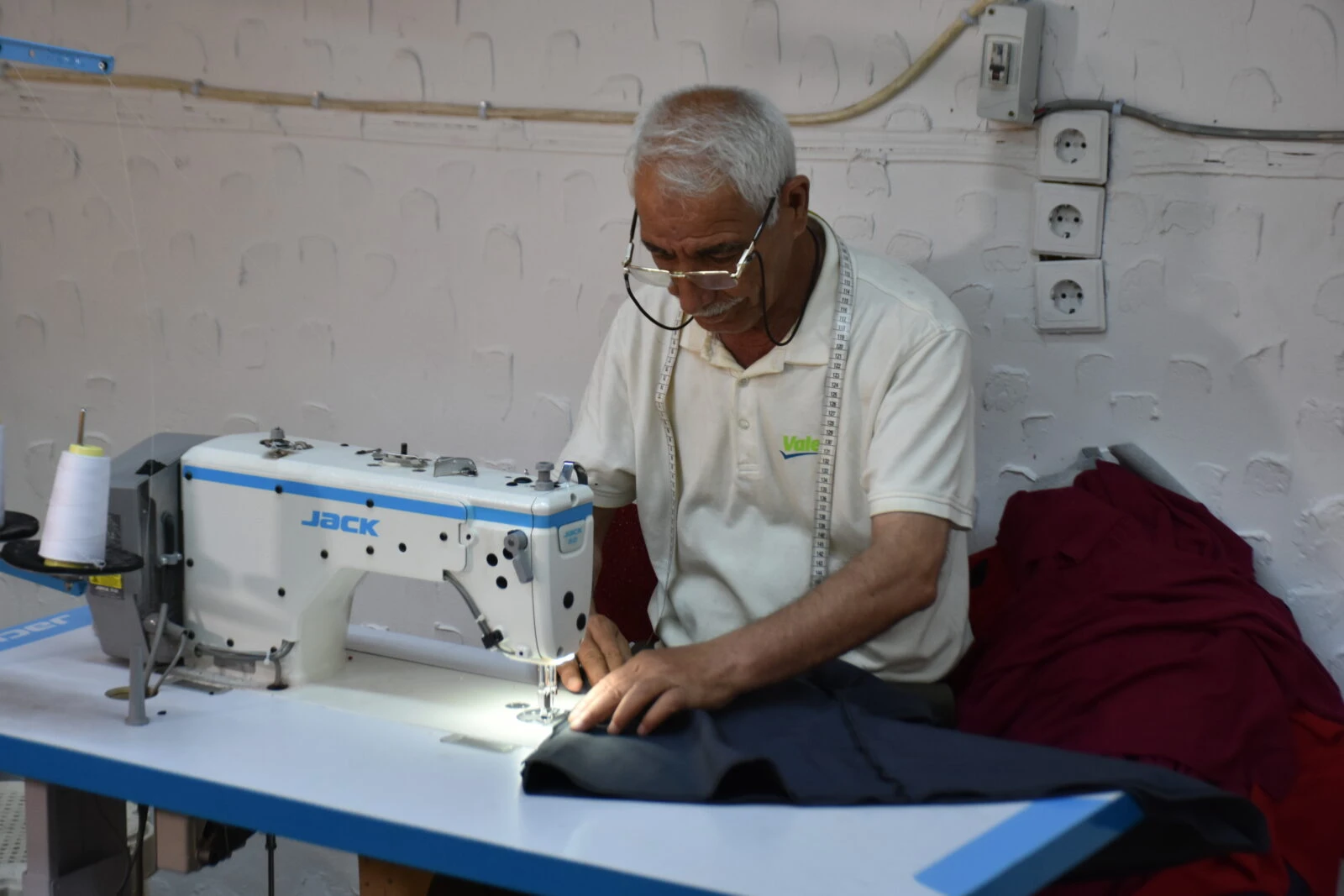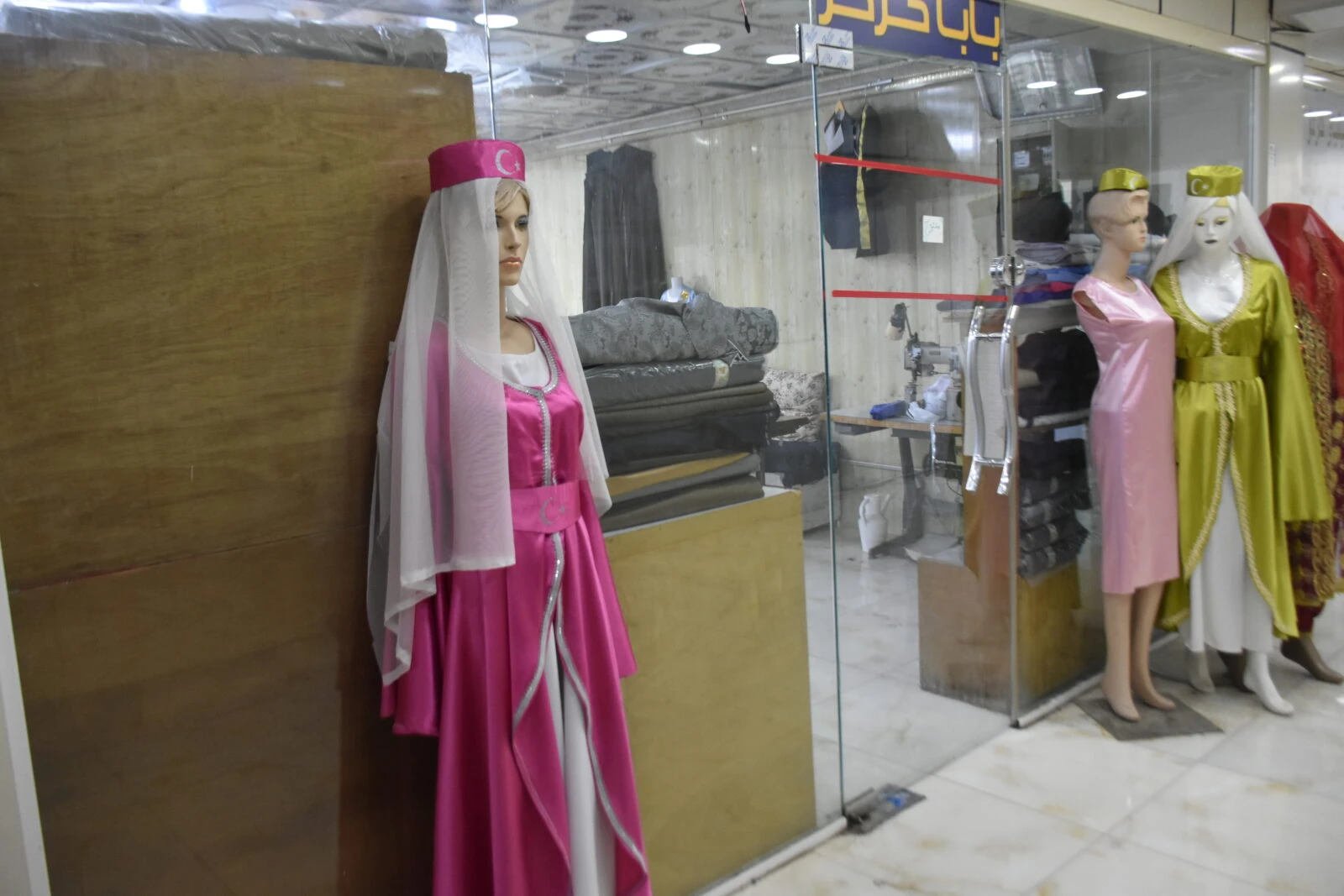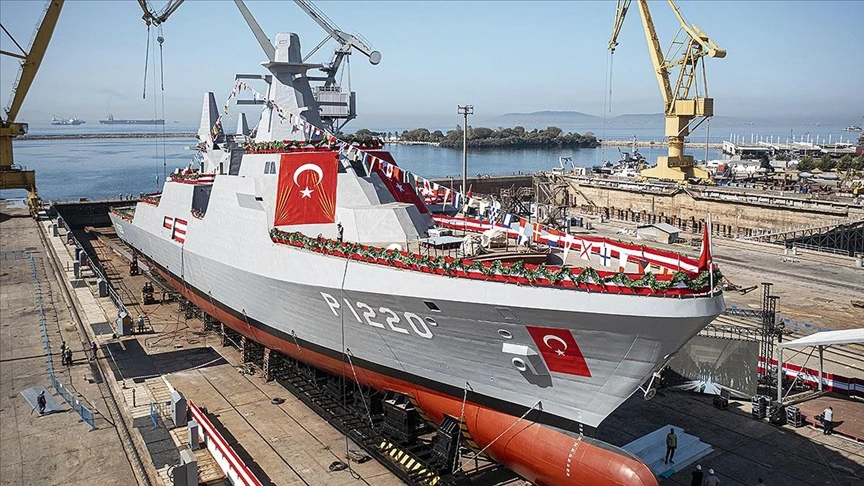Young Iraqi Turkmens spark revival of traditional clothing
 Tailors specializing in Iraqi Turkmens' traditional clothing craft garments based on orders received from various cities with significant Turkmen populations, Kirkuk, Iraq, April 29, 2025. (AA Photo)
Tailors specializing in Iraqi Turkmens' traditional clothing craft garments based on orders received from various cities with significant Turkmen populations, Kirkuk, Iraq, April 29, 2025. (AA Photo)
The Iraqi Turkmen community is seeing a cultural revival as younger generations embrace their centuries-old traditional clothing, giving rise to increased demand, particularly during holidays and weddings.
Preserving heritage through fashion
For generations, Iraq’s Turkmens have preserved their distinctive national attire, wearing it proudly during religious and national celebrations, as well as on special occasions such as weddings. In recent years, however, demand for these traditional garments has seen a marked increase, particularly among young people.
In cities such as Kirkuk, where many Turkmens reside, tailors are now overwhelmed with orders from across Iraq, including Mosul, Diyala, Salahaddin and Erbil. The cultural pride driving this trend is seen as a form of resistance against assimilation and a way to safeguard Turkmen identity.

Kirkuk tailor keeps centuries-old craft alive
Mutasam Kasap, a 65-year-old tailor in Kirkuk, has been crafting Turkmen clothing for over five decades. Speaking to Anadolu Agency, he said he began his career as an apprentice at the age of 10 and now runs his own workshop.
“These clothes are not only part of everyday life but are especially worn during Eid celebrations and weddings,” said Kasap. “We couldn’t even keep up with the demand during the last Ramadan holiday.”
He added that women often choose the outfits for henna nights, while men tend to wear them on Eid and during official gatherings. According to Kasap, traditional attire is now increasingly seen at political, social, and cultural events.
Over 200 orders from Erbil alone
Kasap noted a significant rise in interest from the Turkmen diaspora, who return home for holidays and bring a renewed enthusiasm for national dress.
“Erbil alone sent us more than 200 orders recently,” he said. “We tailored outfits for spring festivals and Eid celebrations. The growing interest from Turkmen communities in Erbil, Mosul, Diyala, and Salahaddin gives us hope that this heritage will endure.”

A symbol of cultural identity
Muhammet Mehdi Erbilli, Erbil provincial head of the Turkmeneli Students and Youth Union, emphasized the symbolic value of the attire. He explained that Turkmen men and women have distinct clothing styles, with men’s outfits traditionally including the zubun and jacket, while women’s garments often feature crescent and star motifs.
“To protect our culture, language, and identity, we must continue wearing and promoting these clothes,” Erbilli said.
He added that national outfits are now worn at various cultural events, including language days and school celebrations. “Our fathers and grandfathers once wore these clothes daily in the market and on the streets. Now, we are working to revive that legacy.”
Youth leading the way
According to Erbilli, there is growing enthusiasm among young people for wearing Turkmen clothing at university events, language days, and official ceremonies.
“Last year, with the support of the Iraqi Turkmen Front, we donated dozens of traditional outfits to 15 different Turkmen schools,” he said. “The number of young people requesting national garments has significantly increased. They call us directly asking how to get one.”
Erbilli concluded by hinting at future initiatives: “We are already planning new projects to promote and distribute our traditional attire across Iraq.”



